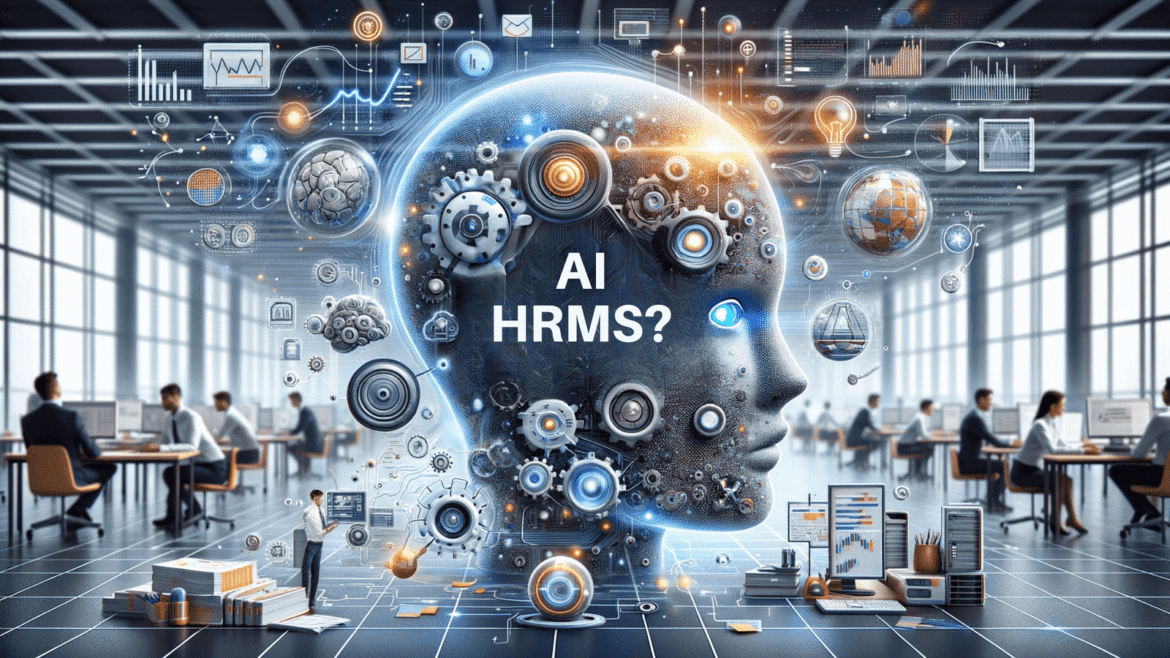Human Resource Management Systems (HRMS) have become a core part of business operations today. As companies in India grow, managing HR processes manually becomes difficult, time-consuming, and prone to errors. This is where Artificial Intelligence (AI) and automation are transforming the HR landscape. Modern HRMS platforms now use AI to make HR operations faster, smarter, and more accurate.
From recruitment and attendance to payroll and performance management, AI-powered HRMS is reshaping how organisations handle their workforce. In this article, we explore how AI and automation are improving HRMS and why businesses should embrace this technology.
What Is AI-Driven HRMS?
AI-driven HRMS uses artificial intelligence, machine learning, and automation tools to streamline HR processes.
It can:
- Predict employee behaviour
- Analyse HR data
- Automate repetitive tasks
- Improve decision-making
- Enhance employee experience
Instead of manually managing large amounts of data, AI helps HR teams focus on strategy, performance, and employee development.
How AI and Automation Are Transforming Modern HRMS
1. Smarter Recruitment and Hiring
Recruitment is one of the most time-consuming HR tasks. AI helps simplify and speed up the process with features like:
- Automated resume screening
- Skill-based matching of candidates
- Predictive analytics to identify top talent
- Chatbots for initial communication
- Automated interview scheduling
AI-driven tools reduce hiring bias and ensure only the most relevant candidates reach the interview stage.
2. Seamless Onboarding
Onboarding new employees involves multiple steps—document verification, training, welcome kits, profile creation, and more.
AI-based HRMS automates these processes by:
- Auto-generating employee records
- Providing onboarding checklists
- Guiding new employees through digital training modules
- Sending automated reminders to managers
This makes onboarding smoother, faster, and more personalised.
3. Attendance and Leave Automation
AI helps improve attendance and leave management by:
- Auto-detecting attendance through biometric or mobile systems
- Identifying patterns in absenteeism
- Sending alerts for unusual attendance activity
- Predicting leave trends during festivals or peak seasons
Automation ensures accuracy and transparency, reducing errors in payroll calculations.
4. Smart Payroll Processing
Payroll is one of the most critical HR functions, and mistakes can lead to employee dissatisfaction or compliance issues.
AI-powered payroll systems:
- Auto-calculate salaries, deductions, taxes, and incentives
- Integrate attendance and leave data in real time
- Detect anomalies (e.g., unexpected spikes in overtime)
- Ensure compliance with PF, ESIC, TDS, and labour laws
This reduces errors and speeds up payroll processing significantly.
5. AI-Powered Performance Management
Traditional performance reviews are often biased and based on limited information.
AI improves performance appraisals by:
- Analysing employee productivity patterns
- Tracking goal progress
- Highlighting skill gaps
- Recommending learning modules
- Offering real-time performance insights
Managers can make more accurate, data-driven decisions.
6. Employee Self-Service and Chatbots
AI-driven chatbots are becoming common in HRMS.
Employees can ask questions like:
- “How many leave days do I have?”
- “When is my salary credit?”
- “How do I download my payslip?”
The chatbot responds instantly, reducing HR workload and improving employee experience.
7. Predictive Analytics for Better Decision-Making
AI can analyse huge amounts of HR data to predict:
- Employee turnover risks
- Training needs
- Future workforce requirements
- Performance trends
- Hiring demands
These insights help organisations plan proactively instead of reacting to problems later.
8. Improved Employee Engagement
AI helps organisations understand employee engagement in real time by analysing:
- Feedback surveys
- Attendance patterns
- Performance scores
- Workplace behaviour
Based on the data, AI recommends actions to improve engagement and reduce attrition.
Why Indian Businesses Need AI-Based HRMS
1. Growing Workforce
As companies scale, managing thousands of employees manually becomes impossible.
2. Hybrid and Remote Work
AI automates attendance, communication, and performance tracking for remote teams.
3. Compliance Complexity
Indian tax and labour laws change frequently. AI ensures HRMS stays updated automatically.
4. Need for Speed and Accuracy
Automated HR processes reduce errors and save valuable time.
Benefits of AI and Automation in HRMS
- Higher Efficiency: AI reduces manual workload and speeds up HR operations.
- Cost Savings: Automation cuts administrative costs.
- Reduced Errors: AI ensures accuracy in payroll, attendance, and compliance.
- Better Decision-Making: Predictive analytics supports smarter HR planning.
- Improved Employee Experience: Chatbots and self-service tools empower employees.
- Scalability: AI-based HRMS systems handle large employee data seamlessly.
Conclusion
AI and automation are bringing a major shift in how HR functions operate. Modern HRMS platforms use intelligent algorithms, predictive analytics, and automation to streamline recruitment, payroll, attendance, performance appraisals, and employee engagement. For Indian companies aiming for growth, adopting AI-based HRMS is not just a technological upgrade—it’s a strategic investment that leads to productivity, accuracy, and stronger employee relationships.
As businesses continue to embrace digital transformation, AI-driven HRMS will play an even bigger role in building successful, future-ready organisations.




